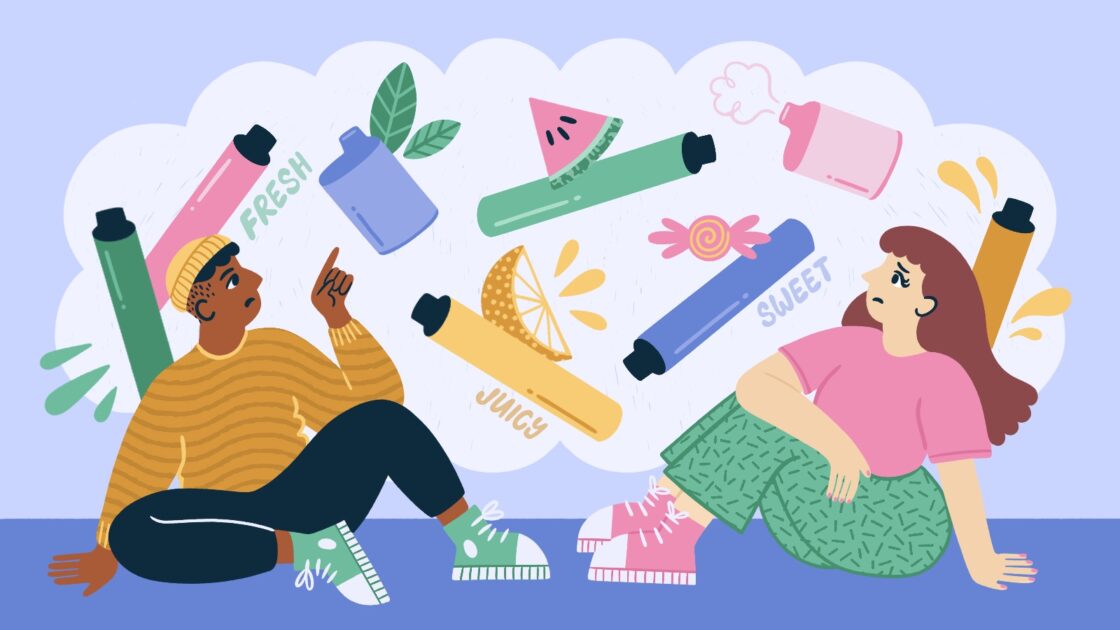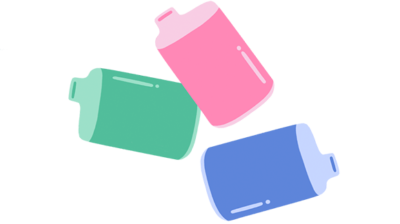How are vapes marketed to young people?
Vaping companies have been criticised by governments, health organisations and other regulatory bodies around the world for the techniques they use to market their products

Since vapes first became popular in the 2010s, there has been a large increase in the number of young people using them. This trend has caused concern among health officials and the medical community about how vapes are marketed to young people and whether this could affect the choices people make about vaping and the impact it may have on their health.
Vaping companies have been criticised by governments, health organisations and other regulatory bodies around the world for the techniques they use to market their products. Some have also been subject to lawsuits relating to marketing targeted at young people.
Many major vaping brands are partially or fully owned by the tobacco industry, prompting criticism that similar tactics used to promote tobacco are being used to promote vaping.
What are the appeal of vapes to young people?
Research suggests that the colourful packaging and sweet flavours of vape products make them more appealing to young people than traditional cigarettes.
In Ireland, the Irish Cancer Society and Irish Heart Foundation commissioned focus groups with third and fourth-year school students to investigate whether vape flavours and packaging make vapes appealing to young people. The results found that these products were more appealing than traditional cigarettes and had marketing similar to that of sweets or desserts like milkshakes.
Vaping devices, particularly disposable ones, also are cheaper than cigarettes, which can make it easier for younger people to start using them.
Vape marketing on social media
In the past, vaping companies have tried to advertise their products on social media sites such as Facebook, Instagram, YouTube and TikTok.
Advertising standards organisations around the world, such as the UK’s Advertising Standards Authority (ASA), have found this to be in breach of advertising standards due to rules against the promotion of nicotine or nicotine-containing products that are not licensed medicines.
Instagram, the social media platform, banned influencer promotion of vapes and tobacco in 2019. Research into vape marketing on social media has found that despite this, some influencers still promote these products on social media platforms.
Promotional content about vapes made by influencers, has been criticised for not being upfront about the fact that they are being paid by vaping companies. Research into vaping advertising has also found that they may not include health warnings about nicotine being addictive. The content may also expose young people who do not smoke or vape already to content that encourages an interest in vaping.
Vape marketing and lawsuits
Vape manufacturers have been subject to lawsuits about how these companies’ products have been marketed to young people
Juul, a US electronic cigarette company, has settled thousands of lawsuits with both US states and individual users of vape products relating to how they have marketed their products.
These lawsuits have claimed that Juul:
- Intentionally marketed its products to young people including teens/minors
- Claimed these products were harmless in its marketing
- Failed to disclose that its products contain nicotine and downplayed the potential to become addicted to vaping products.
As of 2023, Juul has reportedly spent more than €2 billion to settle these lawsuits and agreed to various measures to change how they market products.
What does the law say about vape marketing?
The Public Health (Tobacco Products and Nicotine Inhaling Products) Bill, controls the sale of vape products. Under this law, selling a vape to someone who is under 18 is be punishable by a fine of up to €4,000 and six months in prison for the retailer. If a retailer that sells vapes is caught more than once selling vapes to minors, the fine is be a maximum of €5,000 and up to 12 months in prison. This punishment applies to retailers, not to minors who try to buy vapes.
The legislation also controls how vape products are sold and advertised. This includes:
- Banning vape vending machines
- Banning the sale of vaping products at events for children
- Making it illegal to advertise vaping products on public transport and near schools
Ireland’s advertising authority, the Advertising Standards Authority of Ireland, expressly forbids advertising for vape or nicotine products to contain any health or medicinal claims.
Up until December 2023, it was not illegal in Ireland to sell vaping products to people under the age of 18. This was because these products were not specifically covered in legislation that controls the sale of tobacco products.
Feeling overwhelmed and want to talk to someone?
- Get anonymous support 24/7 with our text message support service
- Connect with a trained volunteer who will listen to you, and help you to move forward feeling better
- Free-text SPUNOUT to 50808 to begin
- Find out more about our text message support service
If you are a customer of the 48 or An Post network or cannot get through using the ‘50808’ short code please text HELLO to 086 1800 280 (standard message rates may apply). Some smaller networks do not support short codes like ‘50808’.






